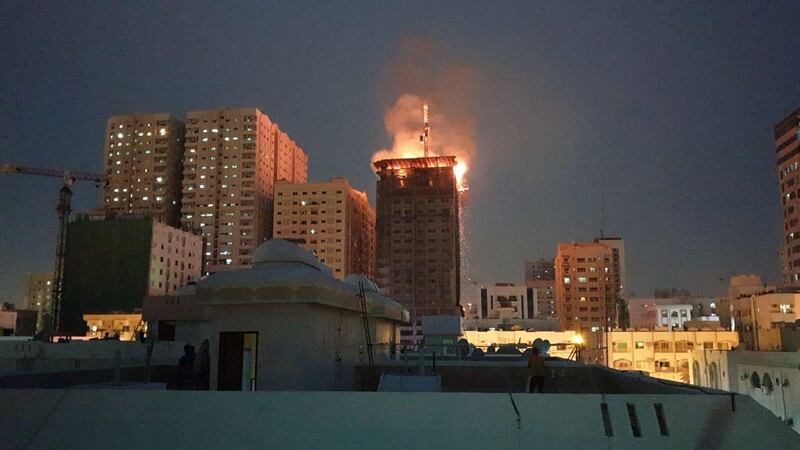Sharjah is planning to introduce artificial intelligence (AI) in buildings to improve early fire detection and prevention. This move marks a significant step forward in the emirate’s ongoing efforts to enhance public safety. The first phase involves research conducted in Sharjah, supported by both local and international experts. Government entities, educators, and industry professionals will work together to develop advanced fire safety strategies.
As part of this initiative, the American University of Sharjah’s (AUS) College of Engineering hosted a two-day fire safety symposium. The event was organized in collaboration with the Sharjah Civil Defence Authority. Lieutenant Colonel Dr. Hamad Abdul Karim Al Mazmi, Director of the Protection & Safety Department, explined that this symposium is the starting point of the broader project. He said results could emerge by the end of the year, and buildings may begin using smart fire technologies by next year.
So far, Sharjah has not revealed exactly how AI will be used in buildings. However, international examples are already offering guidance. Dan Munsey, Fire Chief of San Bernardino County in California, shared how his department uses AI tools for fast decision-making. He also explained how drones are deployed as first responders. AI can even predict where future natural disasters might occur, helping authorities act before fires break out.
American University Sharjah research
The symposium covered a wide range of topics, including artificial intelligence, robotics, engineering, and fire prevention. Dr. Rami Hawileh, a civil engineering professor at AUS, emphasized that fires often follow natural disasters like earthquakes. He noted that their impact can be devastating. Hawileh highlighted the need to educate the public on fire safety practices. To help address this, AUS launched a minor program in fire protection and safety last year. The goal is to train professionals who can manage fire risks more effectively.
“Fires remain a major issue,” Hawileh said. “And every individual holds some responsibility during emergencies.” More than 150 delegates from around the world attended the symposium. “We are bringing in global experts to support serious conversations about fire prevention,” he added.
Meanwhile, Sharjah Municipality continues to take steps to upgrade safety standards in buildings. In 2023, the city launched a Dh100 million project to replace building facades with fire-resistant materials. So far, five buildings have been completed, with plans to retrofit 40 in total.
Sharjah’s multi-layered approach shows a strong commitment to using technology and education to reduce fire risks. With AI, smart systems, and public awareness efforts, the emirate is positioning itself as a regional leader in fire safety innovation.

